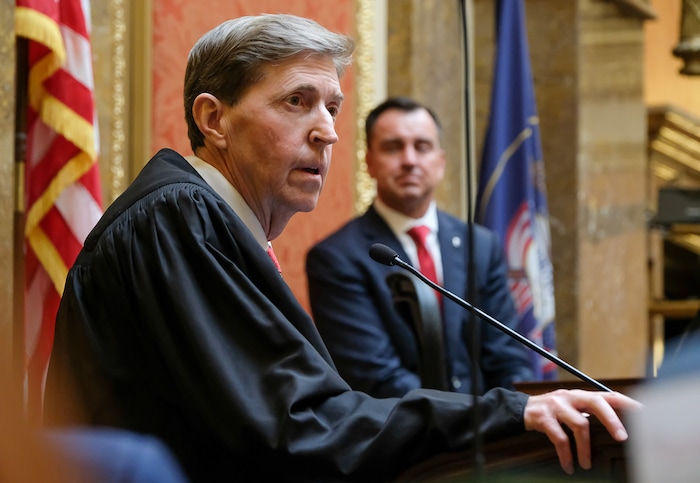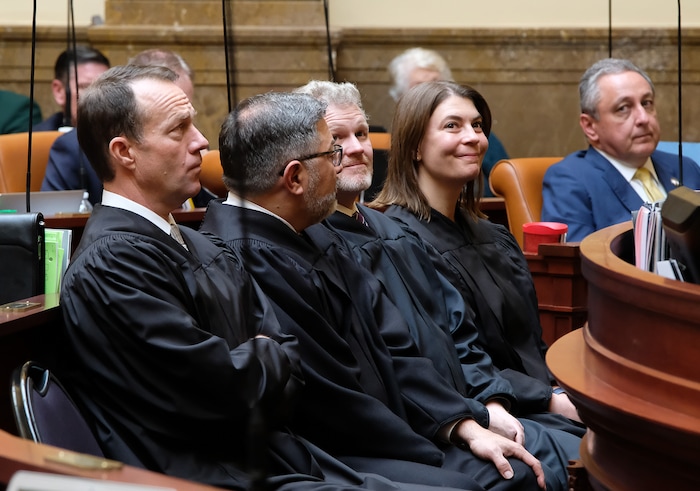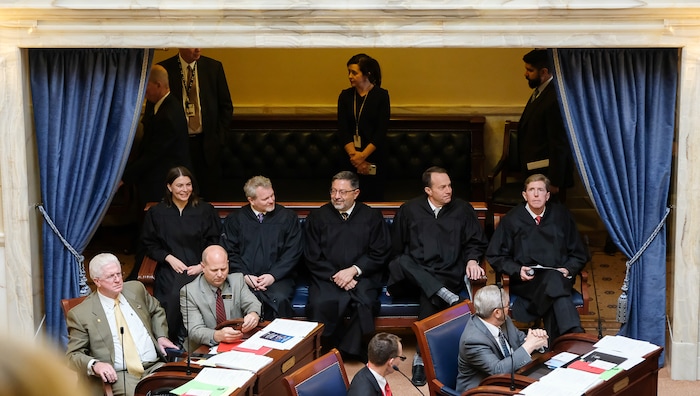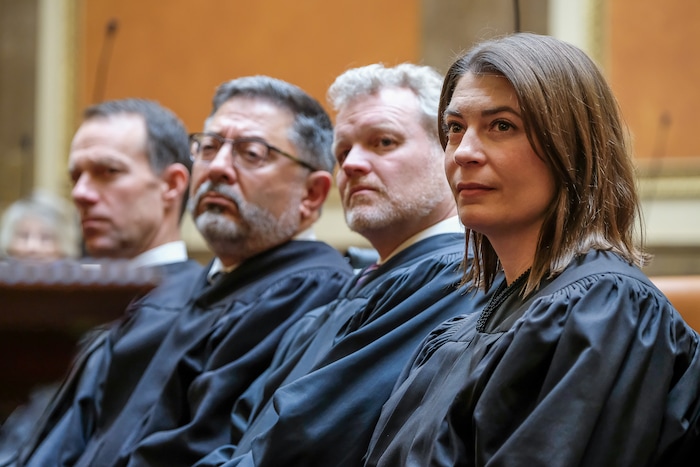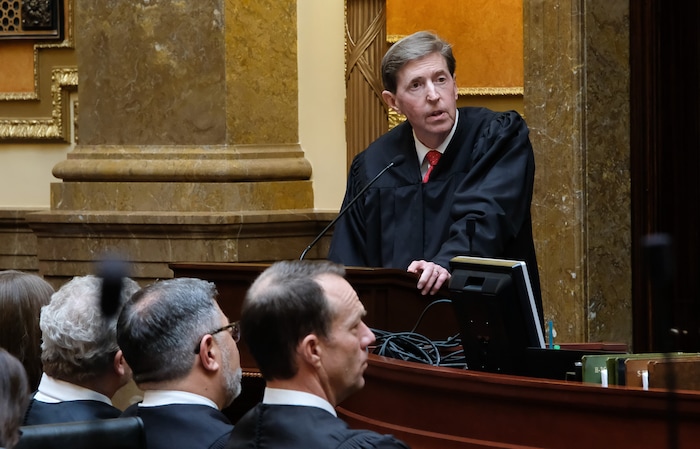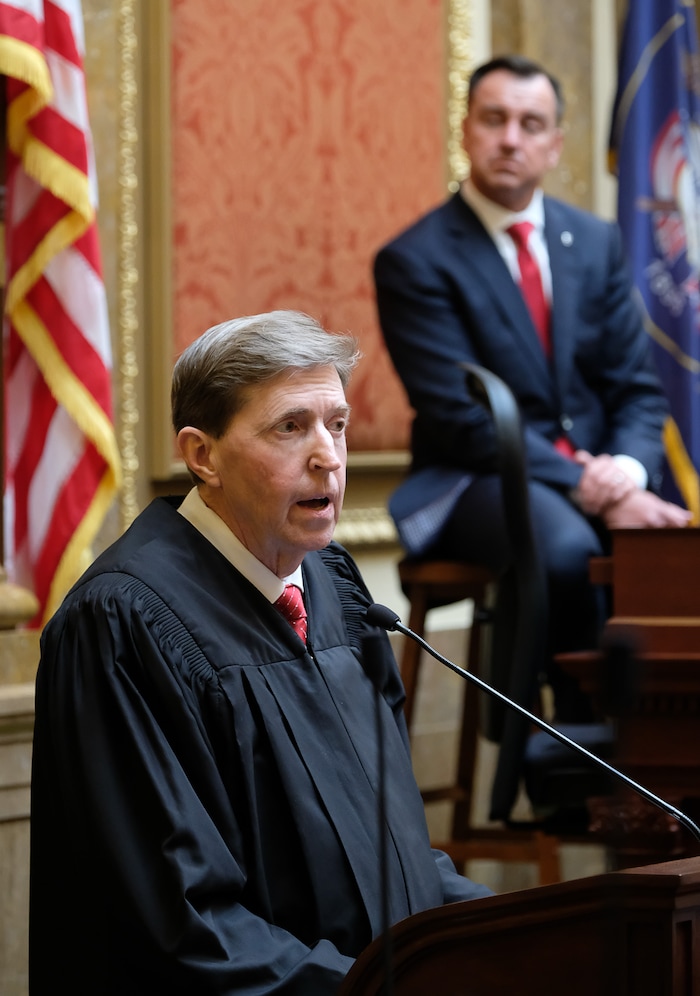Utah Chief Justice Matthew Durrant applauded joint efforts between the courts and lawmakers Monday during the annual State of the Judiciary address, saying the work between the branches of government has helped bring significant reform to the state’s judicial system.
Most notable, Durrant said, were the state’s efforts to address homelessness. He alluded to Operation Rio Grande — an effort which focused on cleaning up crime in the area around the homeless shelter in downtown Salt Lake City, and getting aid to the homeless.
He said the courts contributed to those efforts by forming a new drug court for those who were arrested in the first phase of the crackdown.
The drug court has been successful, he said, with 95 participants in the program working to stay sober and crime-free.
“We are deeply appreciative of the funds you have allocated for criminal justice-related treatment,” Durrant told lawmakers. “They have made a real difference.”
The chief justice encouraged legislators to consider expanding Medicaid in order to access more funding for criminal justice related treatment.
“There is simply no better investment that can be made to improve public safety than an investment in treatment,” Durrant said.
Durrant also touched on other areas where legislators have helped bring reform, including last year’s efforts to improve the state’s juvenile justice system. A bill passed last year brought sweeping changes in how youth are treated in the system, with the goal of keeping low-risk youth offenders in their homes instead of detention centers.
And changes have been made in the civil courts as well, Durrant said, including the creation of the Licensed Paralegal Practitioner (LPP) Program. The program created a new legal profession, in which an LPP has more training and responsibilities than a normal paralegal, but is not quite a lawyer. This provides a more affordable option to Utahns who are trying to navigate the court system as they file for divorce, settle debts or resolve eviction issues.
But there is one hot-button reform effort that remains unsolved: Whether judges should use a new screening process that would give them more information about a defendant’s history — including past arrests, convictions and past instances of skipping court — in determining bail amounts. It’s “remarkable,” Durrant said, that this information is not already given to judges in making critical pre-trial decisions.
The new screening process was expected to begin in November, but court officials opted to delay the process after lawmakers expressed concern that the courts were making changes without their input.
“You have raised important questions about these changes,” Durrant said Monday, “and we have met with many of you to address them. We are hopeful that your concerns have been allayed, and we look forward to implementing this important reform.”
Court officials said Monday that no implementation date has been set.
Legislators in September passed a motion asking that the courts postpone the changes until they could be considered by lawmakers during the 2018 session. In addition, legislative leaders wrote a letter to Durrant last fall noting that in other states where similar reform was made, lawmakers had authorized the changes.
Durrant wrote in an October response letter that the courts would pause the measure to provide more information to lawmakers, whom he said he believed had been fed “misinformation” from bail bond industry representatives, including that the new protocol will cause jails to become a revolving door for criminals.

